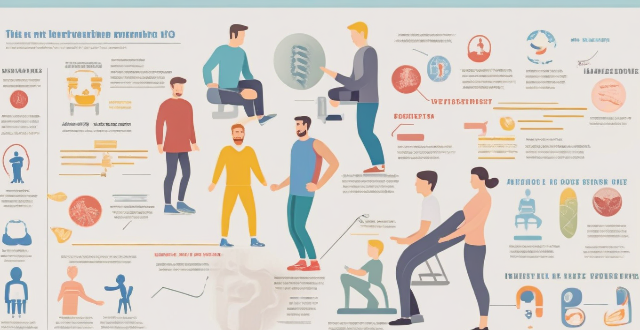This article explores the impact of sports participation on mental health and well-being, particularly for marginalized groups. It highlights the physical health benefits such as improved cardiovascular health, weight management, and immune system strengthening. Mental health benefits include reduced stress and anxiety, increased self-esteem, improved sleep, and enhanced cognitive function. The article also emphasizes the importance of providing accessible sports opportunities and promoting inclusivity to reduce stigma surrounding mental health issues, build resilience, and foster strong communities among marginalized groups.

Impact of Sports Participation on Mental Health and Well-being of Marginalized Groups
Introduction
Participation in sports has been widely recognized as a positive activity that promotes physical health and well-being. However, the impact of sports participation on mental health and well-being, especially for marginalized groups, is often overlooked. This article will explore the various ways in which sports participation can positively affect the mental health and well-being of marginalized groups.
Benefits of Sports Participation
Physical Health Benefits
1. Improved Cardiovascular Health: Regular physical activity through sports participation can improve cardiovascular health by reducing the risk of heart disease and stroke.
2. Weight Management: Sports participation can help manage weight by burning calories and promoting muscle growth.
3. Improved Immune System: Exercise through sports participation can strengthen the immune system, making it more resistant to illnesses and diseases.
Mental Health Benefits
1. Reduced Stress and Anxiety: Engaging in physical activity releases endorphins, which are natural mood boosters that can reduce stress and anxiety levels.
2. Increased Self-Esteem: Participating in sports can improve self-esteem by providing a sense of accomplishment and pride in one's abilities.
3. Improved Sleep: Regular physical activity can improve sleep quality, leading to better overall mental health.
4. Enhanced Cognitive Function: Sports participation has been linked to improved cognitive function, including memory, attention, and decision-making skills.
Impact on Marginalized Groups
Access to Sports Opportunities
1. Inclusivity: Sports programs should be designed to be inclusive of all individuals, regardless of their background or abilities. This includes providing accessible facilities, equipment, and training for those with disabilities or other barriers to participation.
2. Community Building: Sports programs can serve as a platform for building strong communities among marginalized groups by fostering teamwork, communication, and social support networks.
3. Role Models: Providing opportunities for marginalized groups to participate in sports can create role models who inspire others to pursue their own athletic goals and aspirations.
Mental Health Benefits for Marginalized Groups
1. Reduced Stigma: Participation in sports can help reduce the stigma associated with mental health issues by promoting open discussions about mental well-being within the context of physical activity.
2. Increased Resilience: Engaging in sports can build resilience among marginalized groups by teaching them coping mechanisms for dealing with adversity and challenging situations.
3. Social Support: Participating in sports provides a supportive environment where individuals from marginalized groups can form meaningful relationships and receive emotional support from their peers.
4. Positive Identity Formation: Sports participation can help marginalized individuals develop a positive sense of identity by providing them with a sense of belonging and purpose within their chosen sport.
Conclusion
Participation in sports has numerous benefits for both physical and mental health, particularly for marginalized groups. By providing accessible sports opportunities and promoting inclusivity, sports programs can help reduce stigma surrounding mental health issues, build resilience, and foster strong communities among these groups. It is essential to continue working towards creating more inclusive sports environments that prioritize the well-being of all participants, regardless of their background or abilities.